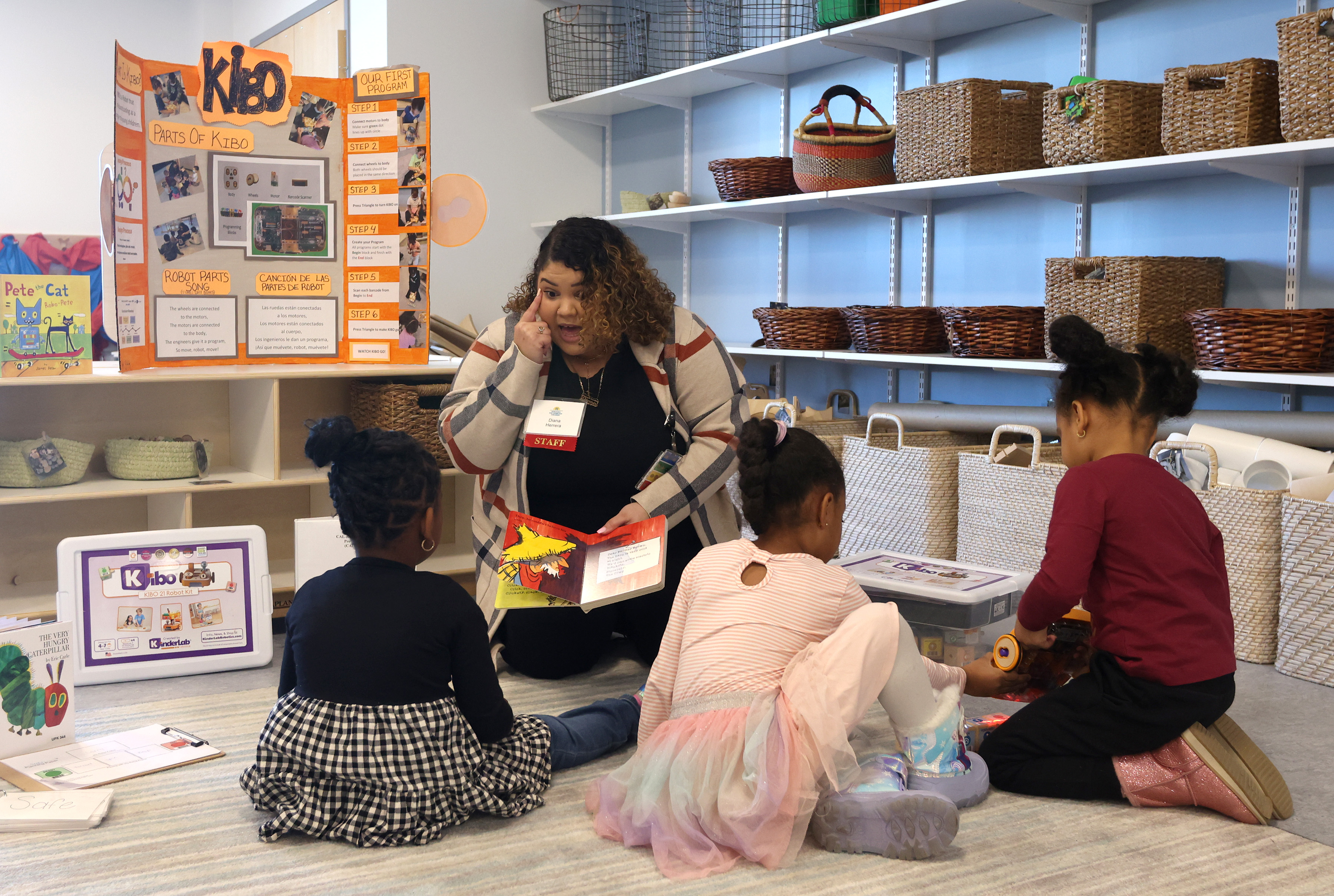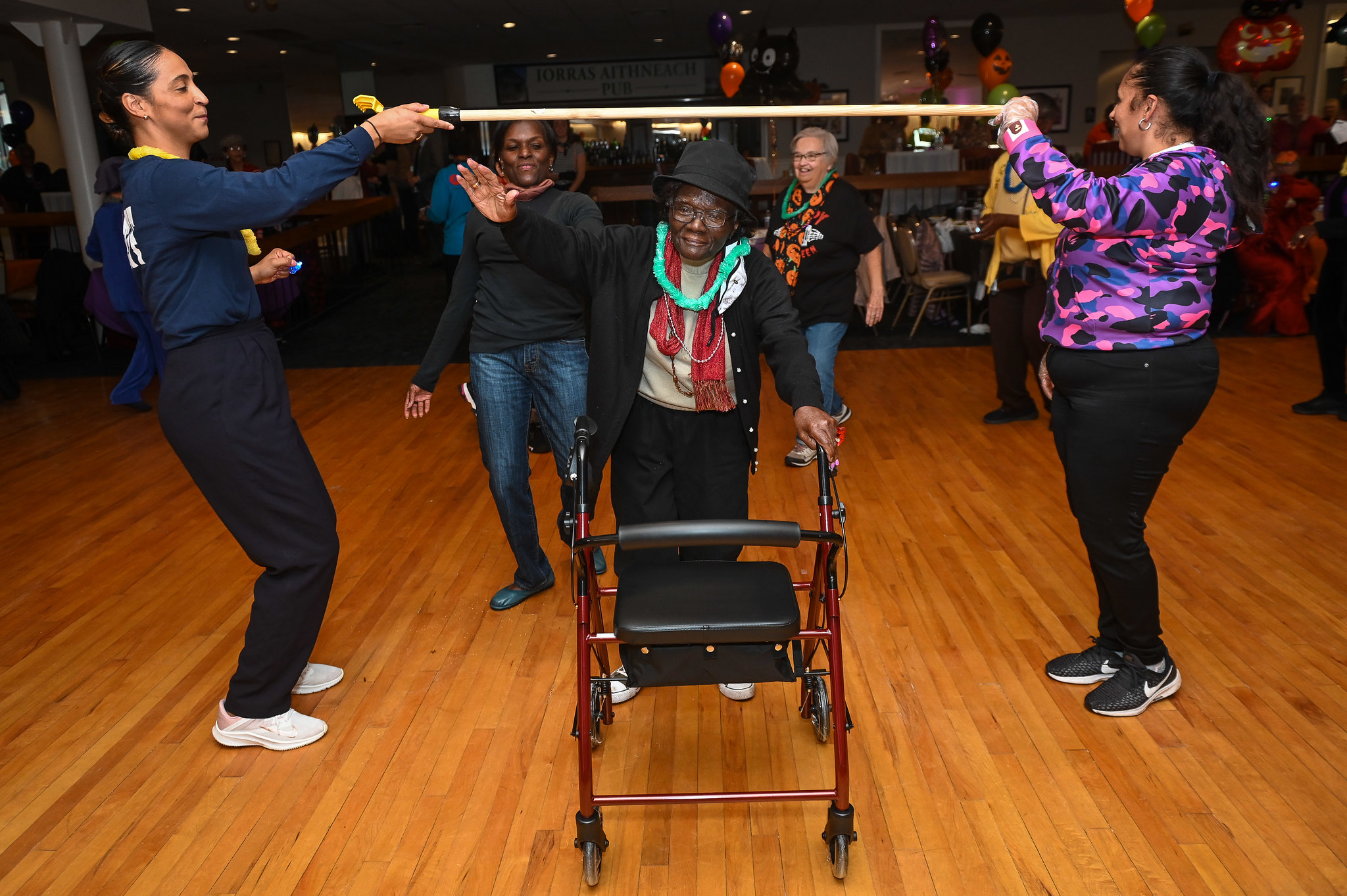Creating Inter- Generational Opportunity
Boston should be the best place in the country to raise a family, with high quality, supportive programs and facilities accessible to all our residents. Bostonians should have access to the resources they need to thrive and build wealth.
Between the Boston Public Schools (BPS) and charter schools, public education makes up over 40% of the City’s FY24 budget. A BPS operating budget of $1.446 billion will support 50,000 students in public schools, and $280 million will support 10,558 Boston students in charter schools. The City's FY24 budget also includes investments in the Office of Early Childhood to expand access to pre-K and to support childcare centers and the early education workforce. An additional set of investments in City community spaces reinforce their importance to the health and overall well-being of residents. Led by the Worker Empowerment Cabinet, the City will expand initiatives to help disadvantaged communities build generational wealth.
Early Childhood
With the Office of Early Childhood, the City is continuing to lay the foundation for the future by investing in its youngest residents. The FY24 budget dedicates $4 million in new funding to the Universal Pre-K program to add 350 new seats for 3- and 4-year-olds. In addition, there is over $17 million in American Rescue Plan Act (ARPA) funding to make strategic investments in early education and the child care workforce.
- ARPA funds will support the creation of a citywide workforce development program for early educators through licensure and business development training from the Childcare Entrepreneurship Fund.
- Other ARPA projects include distributing grants for childcare centers and family child care businesses in Boston and the development of a user-friendly, multilingual web portal and call line for enrollment in early education programs; this tool would align the enrollment process and timeline and expand access to a variety of early education programs.
Education Funding
The education budget will increase by $84 million over the FY23 appropriation, including Boston's charter school tuition assessment and the Boston Public Schools (BPS) budget. Of the $1.446 billion that makes up the FY24 Operating Budget, nearly 90% will be spent either directly in schools or on school services budgeted centrally, such as transportation and facilities management.
In addition to the City's FY24 Operating Budget, BPS has received roughly $400 million in federal Elementary and Secondary School Emergency Relief (ESSER) funds. In FY23, BPS has appropriated about $155 million of the $400 million in funds, $50 million of which goes directly to schools to make transformative investments that address the specific needs of their school communities.
FY24's budget includes around $178 million in ESSER investments that complement BPS's operating investments. With this infusion of federal and City funds, BPS is taking on long-standing challenges and working to deliver on the promise of educational equity and excellence for all students in the district. Below are some notable investments in the FY24 operating budget.
Education Budget by Fiscal Year
Nearly 90% of the BPS budget will go into schools or toward direct student services.
Districtwide BPS Initiatives
InitiativesIn partnership with the Boston Teachers Union, BPS will make a $9.6 million down payment on a planned multi-year effort to generalize inclusive practices across the district. Professional training, new staffing, instructional materials, and leveraging of student data will play a role in creating a continuum of services for all students.
Investments in multilingual and multicultural education totaling $6.3 million will include expansion of bilingual, heritage, and world language programming. BPS also plans to build out supports for Students with Limited and Interrupted Formal Education (SLIFE) and Multilingual Learners with Disabilities (MLWD).
The City is investing $3.5 million to develop evidence-based reading and writing support for students in every school. The equitable literacy framework emphasizes the use of culturally and linguistically responsive, standards-aligned texts, as well as timely interventions for students who may be struggling to read at grade level.
Other FY24 investments include $4.2 million in commitments to the areas of Social Work, Restorative Justice & Mental Health; High Schools & Alternative Education; and Family and Community Engagement. Collectively, these investments seek to advance student safety, promote social-emotional well-being, strengthen collaboration with parents and the broader community, and increase opportunities for post-secondary success. BPS is also expected to shift around $15 million in positions and services currently funded on ESSER to the City's general fund, ensuring that ESSER-funded work aligned with academic priorities is sustained when relief funding is no longer available after FY24.
BPS Capital
The Green New Deal for Boston Public Schools plan will result in new school buildings in partnership with the Massachusetts School Building Authority (MSBA), as well as reconfiguring and renovating of existing schools to align schools with K-6/7-12 and K-8/9-12 pathways. The planning process is focused on creating high-quality, twenty-first-century learning environments that enable students to close opportunity gaps. Over the next five years the FY24-28 Capital Plan projects $1.05 billion in BPS related spending.
This Capital Plan allows the City to invest in new BPS projects and continue to support projects already in the pipeline, including:
- The Josiah Quincy Upper School and Horace Mann are currently in construction, and the Carter School and Madison Park Technical Vocational School are currently in design.
- New study and design will begin for a consolidated school combining the Shaw and Taylor schools, as well as the King K-8.
- In FY24, the city will continue studying programming and siting for future elementary schools, including a new elementary school in East Boston.
- Upgrades to libraries, science rooms, and art rooms across schools, as well as increased budgets for auditorium improvements and building accessibility.
Activating Community Spaces
While education is critical to creating intergenerational opportunity, a series of investments elsewhere in the FY24 budget are designed to enrich the lives of Bostonians of all ages by activating key community spaces. These include:
- $500 thousand for swimming lessons to help more people take advantage of the city's pools and enjoy them safely
- $750 thousand to allow branches across the city to be open from 9-5 on Saturdays and to extend weekday hours at certain locations
- $900 thousand for programming at BCYF community centers to engage older adults across the city
- The FY24-28 Capital Plan features $178 million in new funding for constructing and renovating BCYF community centers (including pools), as well as $43 million for new branch libraries in Codman Square, Fields Corner, and Egleston Square
Economic Mobility and Wealth-Building
As the City's Equity Statement makes clear, government has a role to play in repairing past harm and breaking down economic barriers. The FY24 budget leans into this work through a series of initiatives, including:
- An unprecedented $18 million investment in youth jobs, the largest in Boston’s history
- $500 thousand to train Boston residents from traditionally underrepresented communities for life science jobs
- $500 thousand to add 2 new tracks at City Academy, training residents for bus driver & wastewater positions in the city
- $250 thousand for senior care workforce development




